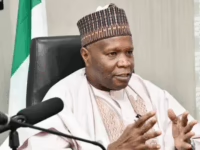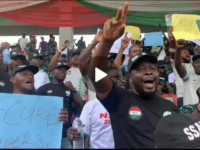
On Thursday, the Federal High Court in Abuja dismissed a legal challenge aimed at invalidating President Bola Tinubu’s suspension of Rivers State Governor Siminalayi Fubara. The presiding judge, James Omotosho, ruled that the court lacked the authority to adjudicate on the legitimacy of a presidential emergency declaration, emphasizing that such jurisdiction is exclusively reserved for the Supreme Court.
“Only the Supreme Court holds original and exclusive jurisdiction over matters concerning emergency proclamations,” the judge affirmed.
President Tinubu had declared a state of emergency in Rivers State on March 18, citing escalating political deadlock and security threats. This action resulted in the temporary removal of Governor Fubara, Deputy Governor Ngozi Odu, and all elected members of the State House of Assembly for a six-month period.
Following the declaration, multiple lawsuits were filed contesting the president’s and National Assembly’s actions. Among these, Belema Briggs and four others initiated a suit against President Tinubu, the Federal Republic of Nigeria, Rivers State Administrator Ibok-Ete Ibas-a retired vice admiral-and three additional defendants. The plaintiffs sought judicial declarations that the administrator-vice-admiral-ibas-probe/” title=”Tensions Rise in Rivers as … Rule Ends: Call for … Intensifies Amid Vice Admiral Ibas's Deepening Probe”>president lacked the constitutional authority to suspend the governor, delegate executive powers to Ibas, and that the emergency proclamation itself was unlawful.
However, on September 17, President Tinubu revoked the state of emergency, reinstating the governor, deputy governor, and legislative members. He acknowledged the contentious nature of the emergency but maintained that its objective-to restore peace in Rivers State-had been fulfilled.
In his ruling, Judge Omotosho noted that the court could not proceed without examining the validity of the presidential emergency declaration, a matter beyond its jurisdiction.
“This court should not have accepted the originating process for filing, as the subject matter clearly falls outside its jurisdiction,” the judge stated.
Furthermore, the court found that the plaintiffs lacked standing, highlighting that an individual cannot represent all residents of a state in such a case, especially when none of the suspended officials were parties to the suit.
Addressing the core issues, the judge acknowledged that the president had reasonable grounds to declare the emergency and appoint a sole administrator for Rivers State.
He ruled that the suspension of the governor and other officials was lawful under Section 305 of the Nigerian Constitution, which empowers the president to act decisively to prevent disorder and uphold public safety.
“The president properly exercised his constitutional authority by appointing a sole administrator for Rivers State pursuant to Section 305,” the judgment read.
Claims that the president required a two-thirds majority approval from the National Assembly were also dismissed, as the plaintiffs failed to substantiate this with credible affidavit evidence.
The judge summarized the key questions as whether the court had jurisdiction, whether the plaintiffs had the legal right to bring the suit, and whether the president possessed the authority to suspend state officials, declare a state of emergency, and appoint an administrator.
Ultimately, Judge Omotosho concluded, “Even if jurisdiction were assumed, the evidence overwhelmingly supports the defendants. Therefore, this suit is dismissed in its entirety.”
























0 Comments